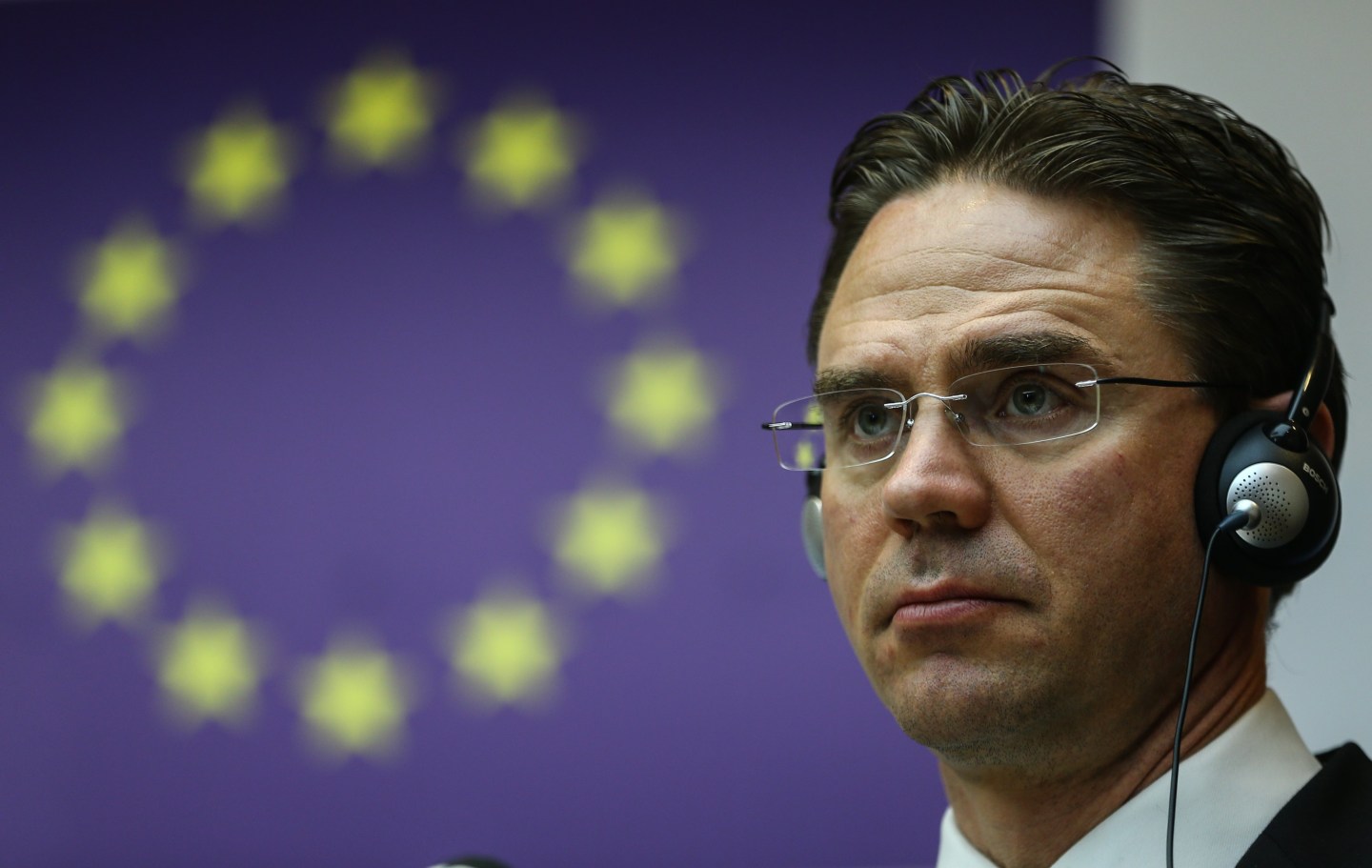European Commission vice president Jyrki Katainen said on Tuesday he remained confident that the European Union and Japan can agree a free trade deal by the end of the year.
Katainen said differences still remain over geographical indications—naming rules that tie agricultural products like Parma ham to a specific region—and public procurement in the transportation sector.
Hostility to free trade has been on the rise in Europe, because its critics blame it for job losses and a widening income divide. Failure to secure a deal with Japan could fuel concerns that free trade is in retreat on a global scale.
“Our understanding is it is possible to conclude negotiations at the end of the year,” Katainen said.
“Some people find it difficult to accept free trade because it can lead to inequality. Our view is the more wealth there is, the more you have to divide up.”
Katainen said he traveled to Tokyo to meet with Japanese government officials before the next round of trade negotiations next week.
A free trade deal could add 0.6 to 0.8 percentage point to Europe’s gross domestic product growth, which is a great incentive to finish negotiations, Katainen said.
The EU has also concluded a comprehensive trade agreement with Canada, but some European government officials have spoken negatively of the deal, which raises doubts about Europe’s ability to pursue other free trade agreements.
Some economists, however, have questioned Japan’s motivation because Prime Minister Shinzo Abe’s government has placed higher priority on the Trans-Pacific Partnership trade deal with the U.S. and other Pacific Rim countries.
Uncertainty about the impact of Britain’s exit from the EU could also come to influence Japan’s stance on the negotiations.
Talks between the EU and Japan have been ongoing since March 2013 so there are concerns that further delays could lead to a loss of momentum.






